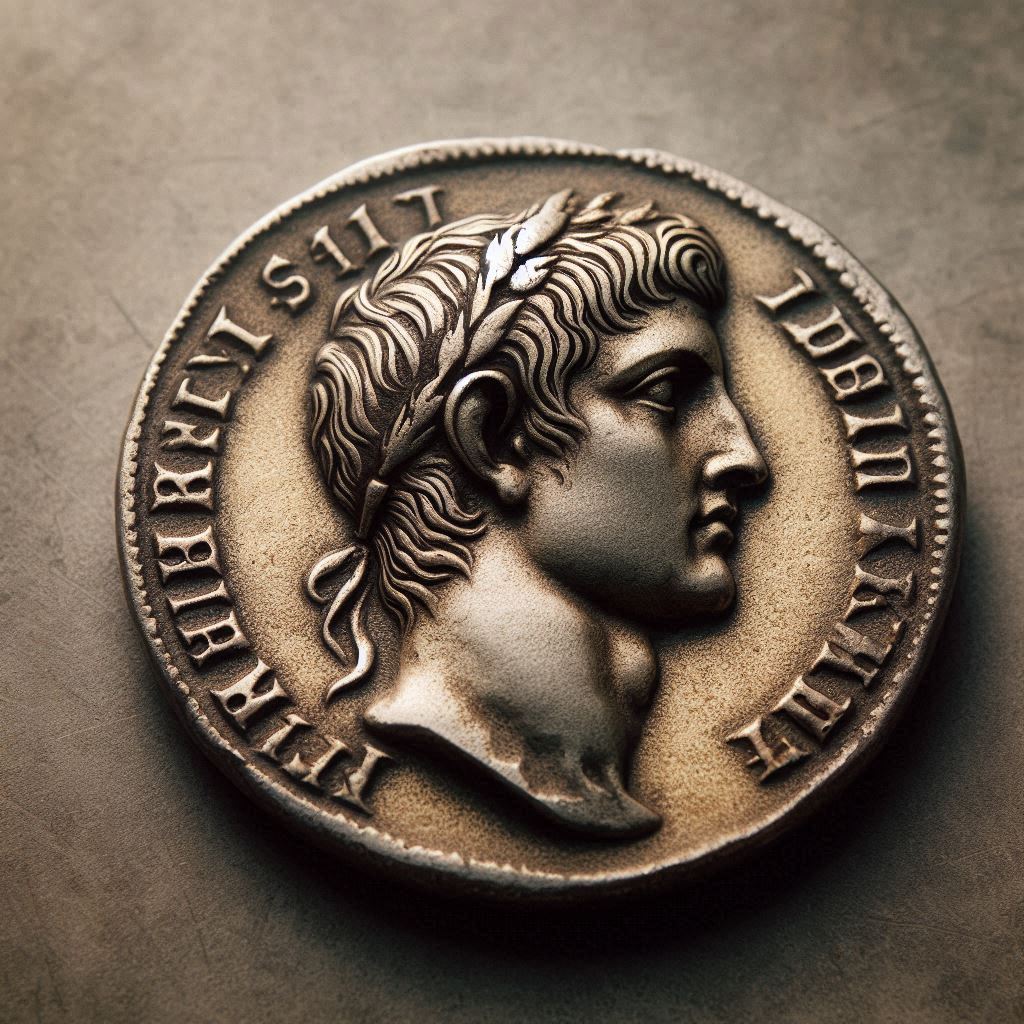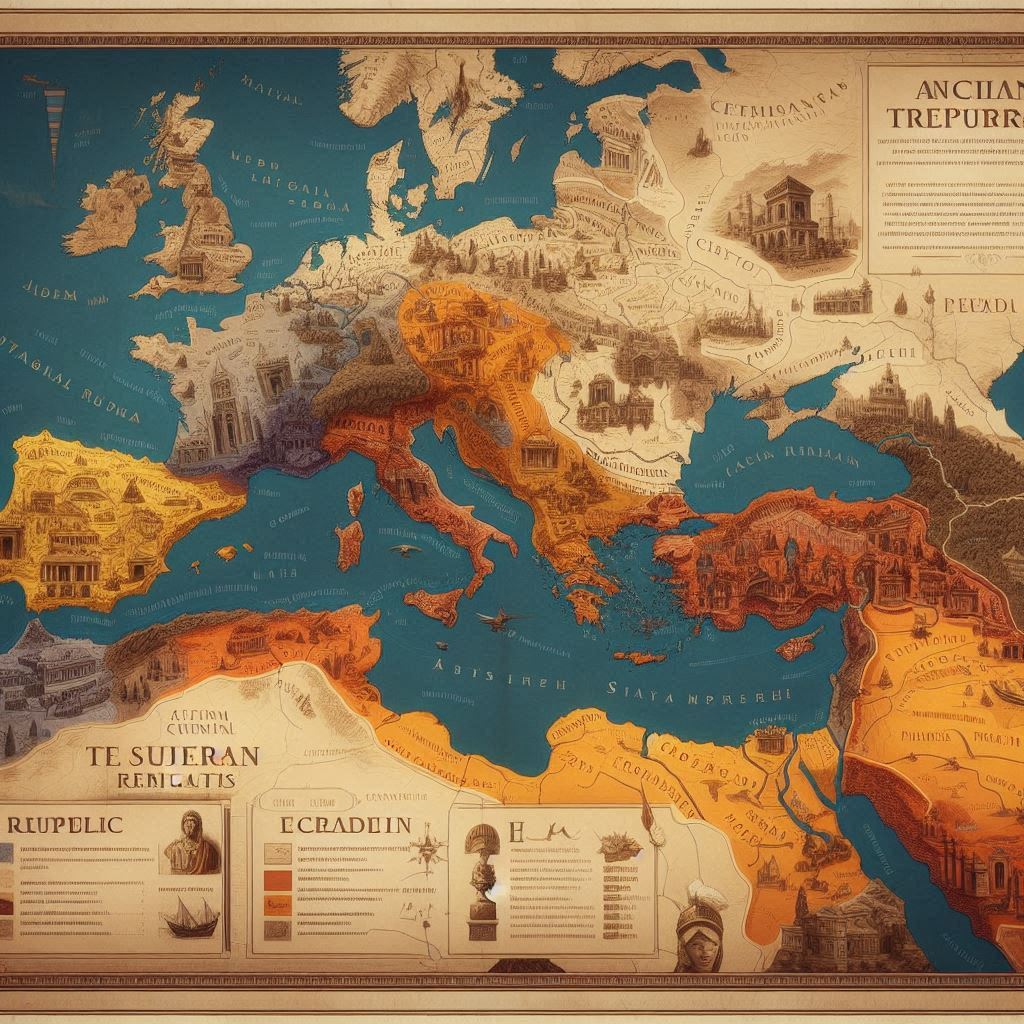The first emperor of the Roman Empire was Augustus, a name that would become synonymous with the start of a new era. He transitioned Rome from a republic marred by civil wars to an empire that enjoyed decades of stability and prosperity. Augustus, born Gaius Octavius, was a man of great political acumen and vision. Here’s how he shaped Rome’s destiny and earned his place in history.
Who Is the First Roman Emperor? Augustus
The title of Rome’s first emperor belongs to Augustus. He assumed this role in 27 BC, marking the end of the Roman Republic and the beginning of an empire that would last for centuries. Augustus brought a new sense of unity to a fractured Rome and laid the foundation for the Pax Romana—a period of relative peace across the Mediterranean.
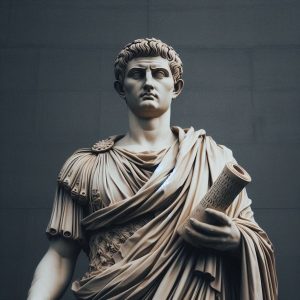
Introduction to Augustus
Augustus was born in 63 BC and adopted by his great-uncle, Julius Caesar, after Caesar’s assassination. His adoption set him on a path that intertwined with Rome’s political upheavals. Augustus skillfully navigated alliances, betrayals, and battles to eventually stand as the unchallenged leader of Rome.
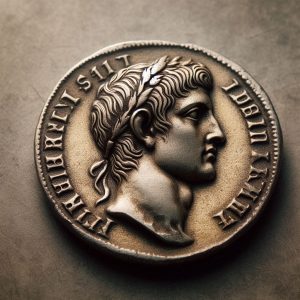
How Did Augustus Become the First Roman Emperor?
Augustus’s rise began with the chaos following Julius Caesar’s murder in 44 BC. As Caesar’s heir, he entered into a power struggle with Mark Antony and Lepidus, forming the Second Triumvirate. Together, they defeated Caesar’s assassins at the Battle of Philippi in 42 BC. However, the alliance soon crumbled, leading to the Battle of Actium in 31 BC, where Augustus defeated Mark Antony and Cleopatra. This victory left Augustus as Rome’s sole ruler, paving the way for him to become its first emperor.
Augustus’s Life Stories
Augustus’s early life was marked by determination and shrewd decisions. Born as Gaius Octavius to a relatively modest family, he displayed a talent for diplomacy and leadership. He formed alliances with powerful figures and used the wealth and support from Julius Caesar’s veterans to secure his position. His rule was characterized by both mercy and severity, depending on what the situation demanded.
Hidden Powers Behind the Scene
Augustus didn’t rise alone; he had the support of key allies like Marcus Agrippa, a trusted general who led his forces to crucial victories, and Maecenas, who helped manage political relationships and the arts. This hidden network of power allowed Augustus to maintain stability and control, even as he portrayed himself as a restorer of the Republic.
A Power Inherited from His Father
Though Julius Caesar was not his biological father, Augustus inherited not only his name but also his influence. This connection provided him legitimacy and a base of support among Caesar’s loyalists. The inheritance allowed Augustus to claim a rightful place in Roman politics, using Caesar’s legacy to justify his own rise.
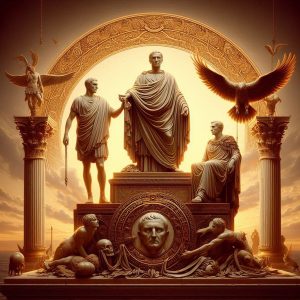
How He Ruled the Empire
Augustus was a master of balancing authority and tradition. While he held supreme power, he maintained the façade of republican values, keeping the Senate intact but under his influence. He established a standing army and reformed the tax system, ensuring stability and economic growth throughout the empire. His rule marked the start of the Pax Romana, a period that saw Rome flourish culturally and economically.
How He Tried to Expand
Augustus wasn’t just content with ruling Rome; he also sought to expand its borders. He led military campaigns in Spain, Gaul, and the Balkans, bringing more territory under Roman control. However, his expansion efforts faced a major setback in 9 AD at the Battle of Teutoburg Forest, where Roman forces suffered a crushing defeat against Germanic tribes. This loss made Augustus rethink further expansion into Germany.
Special Things About Him
Augustus had a profound impact on Rome’s culture. He was a patron of poets like Virgil and Horace, leading to a flourishing of arts known as the Augustan Age. His architectural projects transformed Rome, including the construction of the Ara Pacis, which symbolized peace and prosperity. Augustus also promoted moral reforms, aiming to revive Roman virtues and strengthen the social fabric of his empire.
Biggest Mistake in His Life
Augustus’s biggest misstep was his failure to secure a stable line of succession. He groomed several heirs, including Marcellus, Agrippa, and his grandsons Gaius and Lucius, but they all died prematurely. As a result, Tiberius, his stepson, reluctantly took over after his death. This lack of a clear heir led to future instability in the imperial line.
Why Augustus Is Important in Roman History
Augustus’s significance lies in how he transformed Rome from a republic in turmoil to a stable and powerful empire. He introduced reforms that stabilized the economy, built a network of roads, and established a strong military. Augustus’s reign brought a new sense of order, setting a precedent for future emperors and leaving a lasting legacy on Roman history.
The story of Augustus is one of power, strategy, and transformation. His ability to navigate the turbulent waters of Roman politics made him a key figure in the transition to an empire. As the first emperor, Augustus’s vision and leadership shaped the Roman Empire’s path for centuries, solidifying his place as a legendary figure in history.

